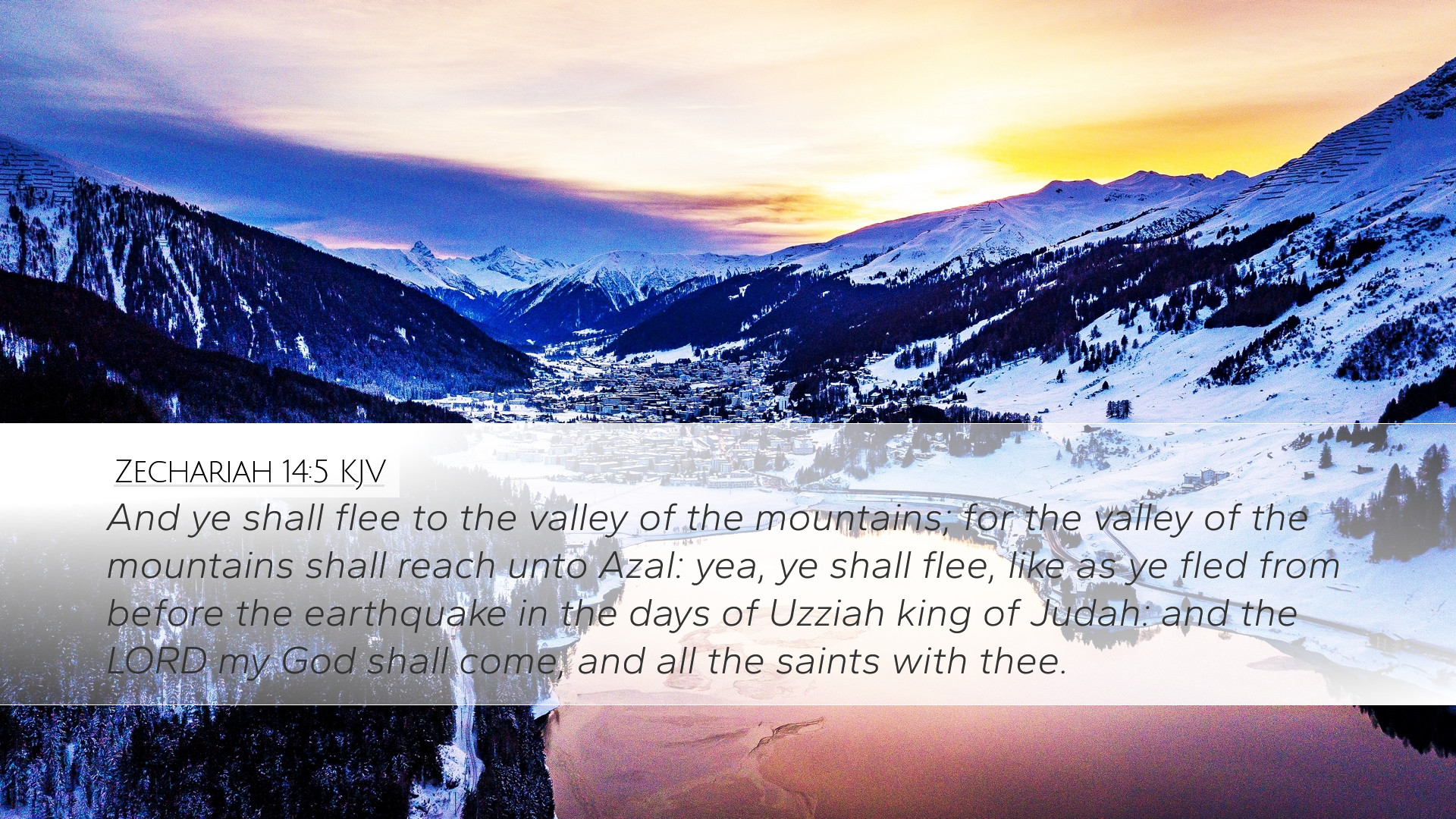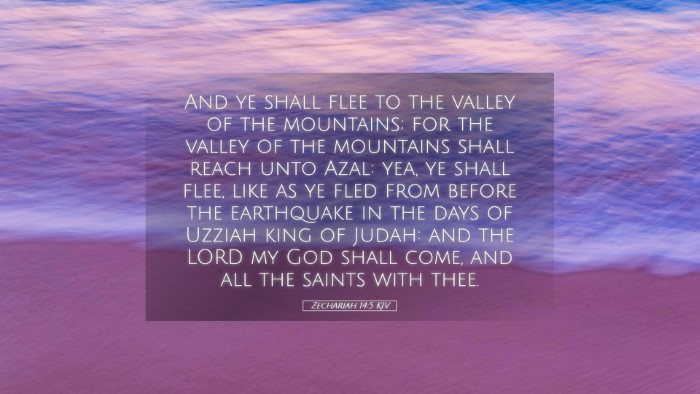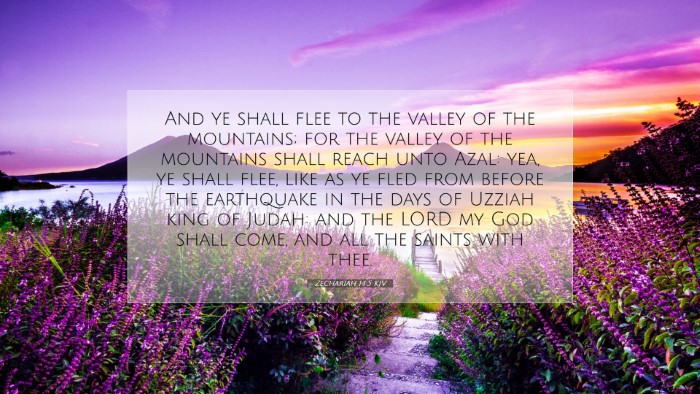Commentary on Zechariah 14:5
Verse Reference: Zechariah 14:5 - "And ye shall flee to the valley of the mountains; for the valley of the mountains shall reach unto Azal: yea, ye shall flee, like as ye fled from before the earthquake in the days of Uzziah king of Judah: and the LORD my God shall come, and all the saints with thee."
Introduction
The book of Zechariah speaks to a time of great upheaval and restoration for Jerusalem and the people of God. Chapter 14 culminates in a vision of divine intervention, judgment, and the ultimate victory of God over evil. This verse encapsulates the themes of flight, divine protection, and the coming of God's presence with His people.
Contextual Background
In the prophetic narrative, Zechariah addresses the Jewish exiles returning from Babylonian captivity. The chapter depicts the eschatological events that will unfold during the Day of the Lord, signaling the end times and the establishment of God's kingdom in its fullness. The imagery of fleeing evokes the historical events that shaped the identity and faith of the people.
Commentary Insights
1. The Valley of the Mountains
Matthew Henry elaborates on the significance of the "valley of the mountains." He notes that this may refer to the topographical features surrounding Jerusalem, which are steep inclines and valleys. The valley symbolizes both refuge and a place of divine revelation. In ancient warfare, high grounds were tactical advantages, but God provides a valley ensuring safety for His people amidst chaos.
2. Historical Reference: Earthquake in Uzziah's Days
Albert Barnes draws attention to the historical earthquake during the reign of Uzziah. This event profoundly affected the people of Judah and serves as a reminder of God's past deliverance. The enormity of such natural upheaval illustrates the power of God, who not only allows such phenomena but uses them to bring about His sovereign purposes. The mention of fleeing calls to mind the urgency with which God’s people must respond in times of crisis.
3. Divine Presence and Protection
Adam Clarke emphasizes the promise of the Lord's coming. The phrase “the LORD my God shall come” indicates imminent divine intervention. This is woven into the fabric of Jewish eschatology, where God's presence among His people signifies hope, renewal, and victory. The idea of accompanying saints denotes the community of believers who share in God's redemptive work. Clarke insists on the assurance that those fleeing will not do so alone; they are accompanied by divine backing.
4. Theological Implications
Theologically, Zechariah 14:5 speaks profoundly of God’s persistent pursuit of His people through adversity. The imagery of flight, reminiscent of the exodus experiences, underscores the faithfulness of God during trials. The assurance of His coming denotes the culmination of prophetic promise — the establishment of God’s kingdom characterized by justice, peace, and perpetual divine presence.
5. Application for Believers
This passage exudes relevance for modern readers—particularly pastors and theologians. It teaches about the necessity for reliance on God during life's upheavals. Just as the people were instructed to flee to safety, contemporary believers are reminded to seek refuge in the Lord. The passage further encourages a communal aspect of faith; as believers today flee from spiritual danger, they do not do so in isolation but as part of the body of Christ, all journeying towards the promise of His kingdom.
Conclusion
Zechariah 14:5 is rich with prophetic imagery and profound theological truth. It invites readers to reflect not only on the historical context of the Israelites but also on the ongoing relevance of divine protection and the promise of God’s presence. In understanding this passage, scholars, students, and pastors may find renewed inspiration to communicate the hope of God's eventual triumph over chaos and evil.


